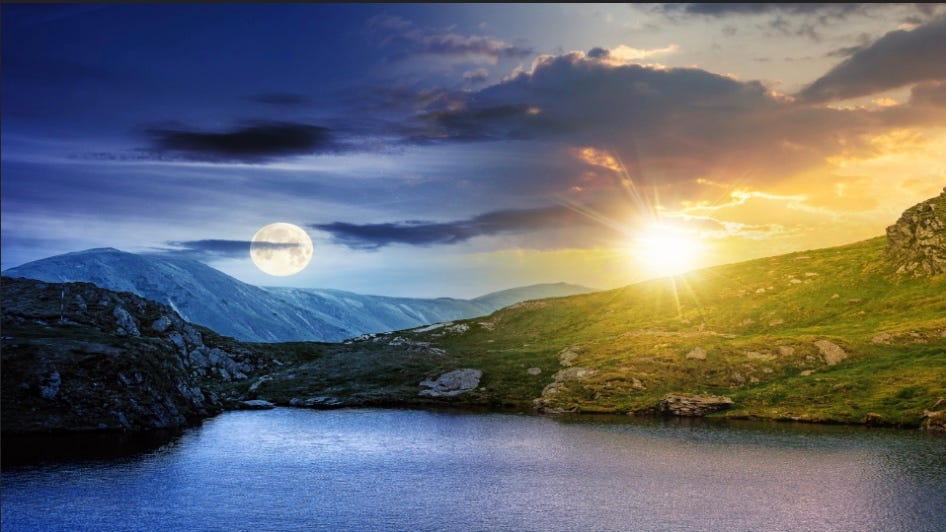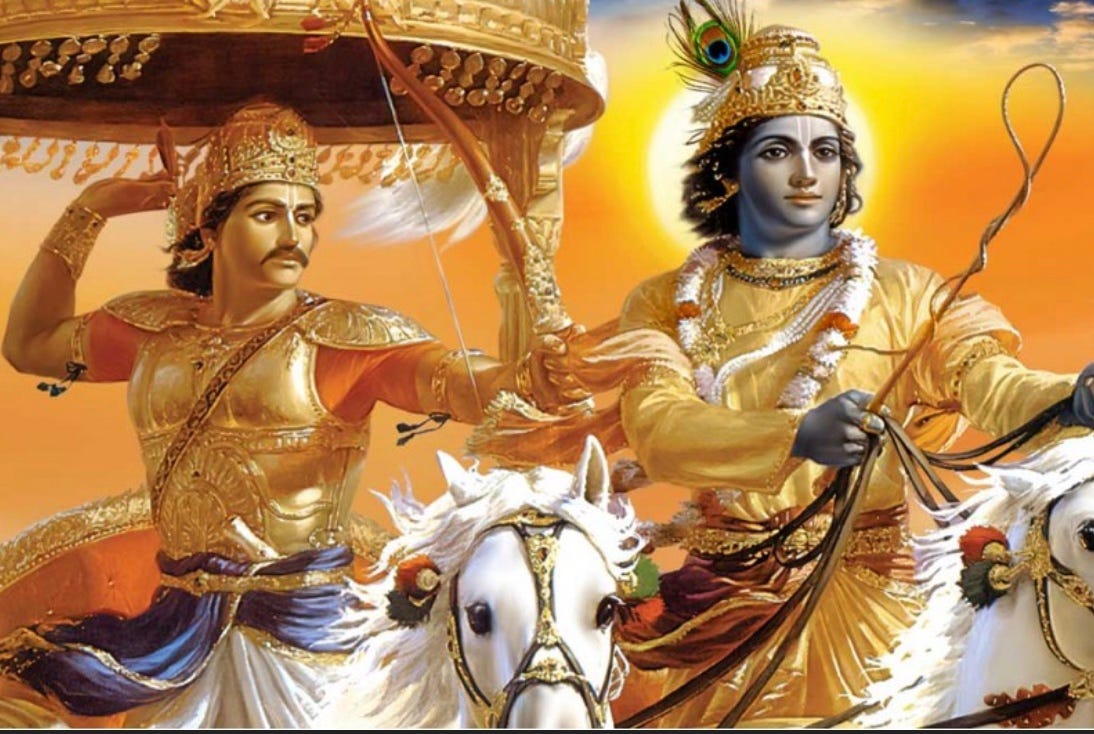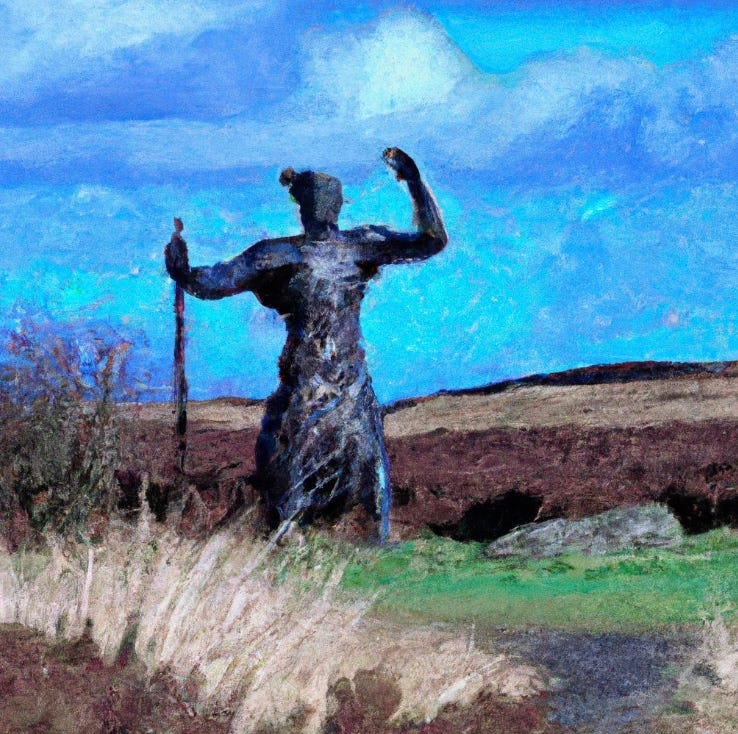“You have the right to perform your duty, but you are not entitled to the fruits of your actions.” — Bhagavad Gita 2:47
There’s a story in the The Bhagavad Gita that tells of Arjuna, standing at the edge of battle. It is the day of the great battle, the very day, more than any other, when he must be focused and clear, but instead he is gripped by doubt.
Arjuna: Krishna, my heart is heavy. How can I fight when those before me are my kin, my teachers, my friends? I see no victory in this battle, only sorrow and destruction.
Krishna: You grieve for those who should not be grieved for, yet speak words of wisdom. The wise do not mourn for the living or the dead. There has never been a time when you, nor I, nor these warriors did not exist, nor will there be a time when we cease to be.
Arjuna: But my hands tremble. My mind is clouded. Would it not be better to walk away from this fight?
Krishna: To abandon your duty is not peace—it is fear. Your dharma as a warrior calls you to act. To fight without hatred, to serve without attachment to the outcome. You have the right to your actions, but not to the fruits of those actions.
Arjuna: And if I fail? If I am defeated?
Krishna: Victory and defeat, pleasure and pain—see them as one. Step forward with steadiness, beyond doubt. True peace is not in retreat, but in action taken with devotion, free from the bindings of desire.
Krishna is teaching Arjuna that his hesitation is born of illusion, that life and death are part of a greater cycle. This is the lesson of dharma—it is not about waiting for certainty, but about trusting the path as it unfolds.
This theme of duty and destiny is not confined to the battlefields of Kurukshetra. In Ireland, we find echoes of it in the story of Cú Chulainn, and in the poetry of W.B. Yeats.
Let’s then consider this famous poem with Arjuna and Krishna in our mind.
Cuchulain Comforted
A man that had six mortal wounds, a man
Violent and famous, strode among the dead;
Eyes stared out of the branches and were gone.
Then certain Shrouds that muttered head to head
Came and were gone. He leant upon a tree
As though to meditate on wounds and blood.
A Shroud that seemed to have authority
Among those bird-like things came, and let fall
A bundle of linen. Shrouds by two and thrce
Came creeping up because the man was still.
And thereupon that linen-carrier said:
'Your life can grow much sweeter if you will
'Obey our ancient rule and make a shroud;
Mainly because of what we only know
The rattle of those arms makes us afraid.
'We thread the needles' eyes, and all we do
All must together do.' That done, the man
Took up the nearest and began to sew.
'Now must we sing and sing the best we can,
But first you must be told our character:
Convicted cowards all, by kindred slain
'Or driven from home and left to die in fear.'
They sang, but had nor human tunes nor words,
Though all was done in common as before;
They had changed their throats and had the throats of
birds.Yeats was familiar with Indian spiritual texts, and no doubt with the passage about Arjuna on the battlefield. His genius lay in revealing these timeless themes within the myths of Ireland. Cú Chulainn is our Arjuna, although with some nuanced differences. Both are warriors, yes, both are following their fate. But anybody who has read the tales of Cú Chulainn will know he was a fierce and violent man, one driven by ambition and personal honour, one not unfamiliar with the ‘battle rage’ that would overcome him.
Yet in the end, both must step into their fate—Arjuna with detachment, Cú Chulainn with fire. Both must ‘sing and sing the best we can.’
The Threshold
We have just crossed the Spring Equinox, a moment of balance—a pause between light and dark, before the scales tip one way or the other. The Equinox is that brief moment of stillness, a breath, before the next cycle begins. The moment before acts and Arjuna stands again on his chariot, before Cuchulainn takes up his sword. Thus it is a threshold, a moment between the known and the unknown.
And here I stand at my own threshold, in the midst of transition. I find myself in that space now, soon to move from the volcanic shores of Lake Atitlán to the dense pulse of New York City, and onward to Ireland, where spring is stirring under the surface. Each of these places holds a different frequency, a different demand. Here in Guatemala, time has been spacious, rhythms slow and deep. In New York, the tempo will shift; Ireland will bring yet another cadence, one shaped by the land and the work waiting for me there.
Life is an unfolding of thresholds is it not. But the Equinox and these myths teach us that it is not a place to linger. It is a crossing point, where we are asked to trust in what is unfolding. Right now, I am in that crossing. Part of me wants to pause, to analyze every detail of what comes next. But the deeper call is to step forward—to continue writing, creating, building, and to trust that the unseen forces are moving with me.
As Yeats says, I also must sing and sing the best I can.
Perhaps you, too, are at a threshold. These crossings take many forms—some marked by clear rites of passage, others quiet and unseen, unfolding within us. Perhaps you feel the pull of change, the discomfort of not yet knowing what’s on the other side. It is easy to linger here, to hesitate at the doorway, waiting for certainty. The key is to act.
So we step forward. We trust the step before us, even if the path beyond it is unclear. We listen for the deeper rhythm moving beneath our feet, guiding us, we listen for the golden thread. And we remember—we do not walk alone. Others have passed this way before, and others will follow.
May we each find the courage to cross, to sing our way forward, and to meet what is waiting with an open heart.
"You have a right to your actions, but never to your actions’ fruits. Act for the action’s sake. And do not be attached to inaction." — Bhagavad Gita 2:47






thank you for this. I will be rereading it. I absolutely had to leave a troubled marriage five years ago and I have felt lost ever since. Threshold after threshold, since. And I think I’m only now discovering that I’ve been angry the whole time because I had done everything right and it was all destroyed anyway.
“You have the right to perform your duty, but you are not entitled to the fruits of your actions.” — Bhagavad Gita 2:47
I don’t think I realized I was so tethered to the fruits of my actions. Or the illusion of those fruits. Thank you again for your writing and I look forward to continuing to read more.
I am looking forward to seeing you here in Leixlip very soon.
May all your dreams come through.